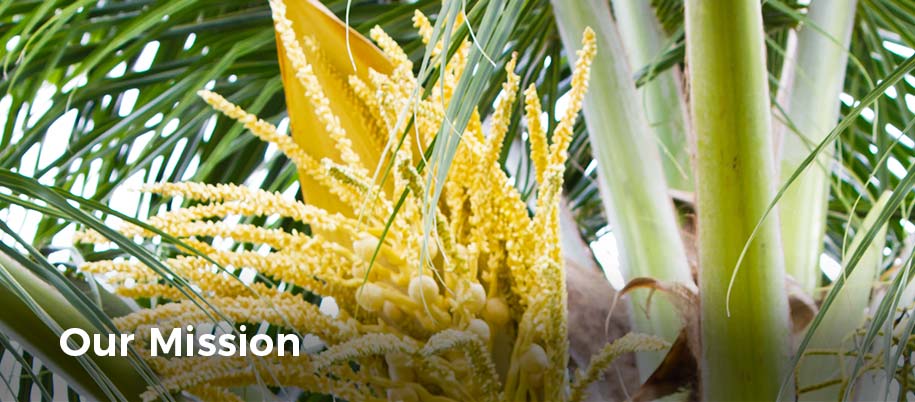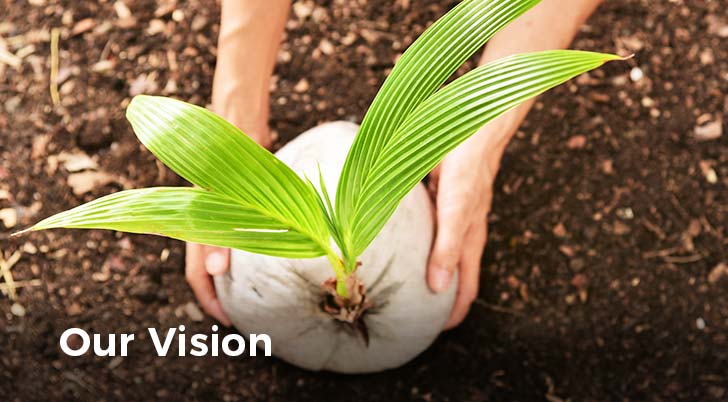Employees remain our most important resource and we ensure safe
and healthy working conditions, pay fair compensation, provide free
medical services, and offer financial grants to improve living
standards.
Our farmers receive fair and stable prices to cover the cost of
production and to boost income levels. We also provide them with
interest-free loans for regenerative practices such as land
development, intercropping, and irrigation.
The fair-trade premiums paid by our customers are directed to large community development projects in education,
healthcare, and infrastructure under the supervision of a dedicated committee.
Introduced a fair selection mechanism for coconuts within the
industry. Serendipol was the first buyer to guarantee farmers the
same price for different sizes of coconuts.
Being a catalyst of rural development by encouraging village level
entrepreneurship by selling farm waste and by-products of our
facility as high-quality and affordable raw materials for those
carrying out value-added initiatives. Through our audit process
we eliminate intermediaries, and the by-products/value addition
inputs are sold at a fair price.
Used our influence in the sector to minimize two formerly
widespread practices within Sri Lanka’s coconut triangle, which
were unfair to growers. Namely:
The practice of purchasing two small coconuts for
the price of one.
The commission system by collectors.
Serendipol was the first processing company in the coconut
triangle to pay a monthly basic wage plus production incentive to
workers in the categories of de-huskers, hatcheters, and parers,
who were generally paid on a per-piece rate.


Banana, pineapple, ginger, cinnamon and other inter crops grown between coconut trees to increase biodiversity, reduce pest pressure, and promote sequestration of CO2 into the soil.
Because crops are planted more densely, also generates additional income per acre for farmers.
Bee keeping to encourage pollination of main and inter crops and to support natural habitats.


Productive seedlings placed in between existing trees to receive sufficient sunlight.
Once seedlings are old enough to produce nuts, the neighbouring ageing trees are removed.


Produced and supplied >33 million kg of compost to our farmers at subsidized prices, spending over $450,000.
With our support, some farmers now produce their own compost on-site.
Over half of our farmers allow cattle to graze on their coconut estates—helping to convert weeds and grass into manure, stimulate growth of plant roots, and sequestration of CO2 into biomass.


Vegetative cover with a ground canopy of perennial grasses and other cover cropping species.
Mulching with weeds, leaves, coconut fronds and coconuts husks.
Adding contour drains/bunds.
Burying spongy coconut husks in pits around trees.


Some of our farms have thick canopies, high species diversity, and high biomass generation reducing soil erosion.
In such farms, we observe recycling of leaf litter, sustainability of soil fertility, reduced soil erosion, and improved food security.
Our innovative and comprehensive agroforestry project.


Ensuring traceability of product through personal, verifiable, and transparent relationships with farmers.
Maintaining organic integrity through stringent measures-e.g., GPS-monitored lorries-to avoid commingling at farm, in transit, or in storage.


To help our contract growers improve the fertility and profitability of their estates through natural methods. To be a catalyst of rural development in our host community and our entire project region-in respectful cooperation with our staff, growers and the community at large.
To conceive, develop and produce novel, high-quality value added coconut based products that demonstrate the versatility of this renewable resource. To demonstrate to customers and consumers that operating under our “organic and fair trade” mandate is compatible with the professional and profitable operation of a business.


To be the world’s foremost supplier of certified organic and fair trade coconut products, thus giving our shareholders and customers a reliable, environmentally sustainable and socially responsible source of raw material for their food and body care products.
